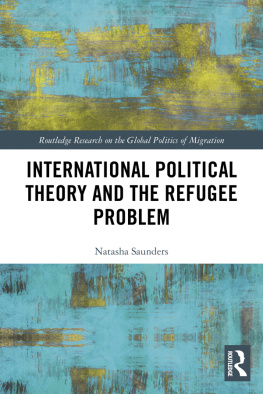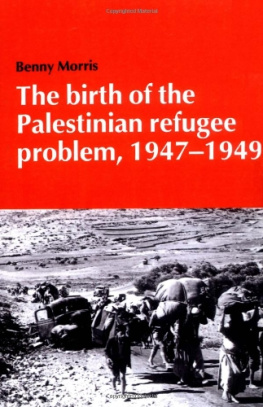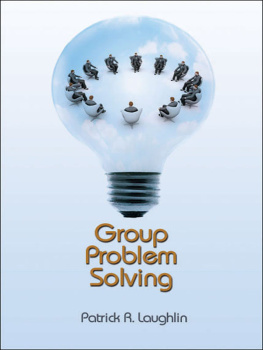Table of Contents
Pages
In this powerful book, Natasha Saunders challenges us to think about refugees in terms of their struggles for rights, sanctuary, and international mobility. Gone is the figure of the refugees as an abject humanitarian victim. Instead, Saunders provides the conceptual tools to perceive refugees as people enacting themselves as political beings. This is a bold and highly recommended intervention into the growing field of critical refugee studies.
Peter Nyers, Associate Professor of Political Science, McMaster University
Saunders brilliantly interrogates and in true Foucauldian fashion uniquely cuts the hard-shelled refugee problem in two to reveal the problem refugees face and the problem they are deemed to pose. Confronting the former, Saunders compellingly explores Arendts thought and decidedly pragmatic efforts like sanctuary provisions to bring us ever closer to understanding how displaced persons might again find their place in the world.
Randy K. Lippert, Professor of Criminology, University of Windsor
International Political Theory and the Refugee Problem
The refugee problem is a term that has become almost impossible to escape. Although the term is used by a wide range of actors involved in work related to forced migration, these actors do not often explain what exactly the problem is that they are working to solve, leading to an unfortunate conflation of two quite different problems: the problems that refugees face and the problems that refugees pose.
Beginning from the simple, yet too often overlooked, observation that how one conceives of solving a problem is inseparable from what one understands that problem to be, Saunders study explores the questions raised about how to address the refugee problem if we recognise that there may not be just one problem, and that not all actors involved with the refugee regime conceive of their work as addressing the same problem. Utilising the work of Michel Foucault, the book first charts how different problems lend themselves to particular kinds of solutions, arguing that the international refugee regime is best understood as developed to solve the refugee (as) problem, rather than refugees problems. Turning to the work of Hannah Arendt, the book then reframes the refugee problem from the perspective of the refugee, rather than the state, and investigates the extent to which doing so can open up creative space for rethinking the more traditional solutions to the refugee (as) problem. Cases of refugee protest in Europe, and the burgeoning Sanctuary Movement in the UK, are examined as two sub-state and popular movements which could constitute such creative solutions to a reframed problem.
The consequences of the refugee label, and of the discourses of humanitarianism and emergency, are topics of critical concern, and as such, the book will form important reading for scholars and students of (international) political theory and forced migration studies.
Natasha Saunders is a lecturer at the University of St Andrews. Her research interests fall within the field of international political theory, with a focus on issues of human rights, migration, statelessness, inclusion/exclusion, and identity.
Routledge Research on the Global Politics of Migration
Globalisation, Migration, and the Future of Europe
Insiders and Outsiders
Leila Simona Talani
Rethinking Security in the Age of Migration
Trust and Emancipation in Europe
Ali Bilgic
Citizenship, Migrant Activism and the Politics of Movement
Peter Nyers and Kim Rygiel
Migration and Insecurity
Citizenship and Social Inclusion in a Transnational Era
Niklaus Steiner, Robert Mason, and Anna Hayes
Migrants, Borders and Global Capitalism
West African Labour Mobility and EU Borders
Hannah Cross
International Political Theory and the Refugee Problem
Natasha Saunders
International Political Theory and the Refugee Problem
Natasha Saunders

First published 2018
by Routledge
711 Third Avenue, New York, NY 10017
and by Routledge
2 Park Square, Milton Park, Abingdon, Oxon, OX14 4RN
Routledge is an imprint of the Taylor & Francis Group, an informa business
2018 Taylor & Francis
The right of Natasha Saunders to be identified as author of this work has been asserted by her in accordance with sections 77 and 78 of the Copyright, Designs and Patents Act 1988.
All rights reserved. No part of this book may be reprinted or reproduced or utilised in any form or by any electronic, mechanical, or other means, now known or hereafter invented, including photocopying and recording, or in any information storage or retrieval system, without permission in writing from the publishers.
Trademark notice: Product or corporate names may be trademarks or registered trademarks, and are used only for identification and explanation without intent to infringe.
Library of Congress Cataloging in Publication Data
A catalog record for this book has been requested
ISBN: 978-1-138-23566-3 (hbk)
ISBN: 978-1-315-30415-1 (ebk)
Typeset in Times New Roman
by Wearset Ltd, Boldon, Tyne and Wear
To my family and friends: my home in the world
Contents
Acknowledgements
The initial research for this book was made possible by the generous support of the UK Economic and Social Research Council, and could not have been completed without the counsel, advice, and camaraderie of my colleagues and friends in the School of International Relations at the University of St Andrews. I wish particularly to thank Patrick for the integral role he has played in the development of this book. Patrick, for your patience, your friendship, and for the invaluable guidance that you have given me over the years I will be forever grateful. Truly.
This book began its life as a PhD research project, and over the years I have presented ideas and papers that became its chapters at a range of conferences, workshops, and seminars. At each of these gatherings I received invaluable questions, comments, and suggestions. But while I remember many of those questions, I remember only a few of the people asking them. And so, I would like to send my thanks here to all of you, in the hope that this book, and my gratitude, do indeed find their way to you.
This book would be no more than an idea without the hard work of my editorial team at Routledge. I owe many thanks to Natalja, Lillian and Maria. From my first tentative email to the delivery of the manuscript you have made this process immeasurably less stressful and more enjoyable than I feared it would be. I hope that the final product will repay the faith that you have placed in me and my ideas.
I count myself lucky to have had the companionship of so many people more than I can name with whom I have laughed, cried, and debated over the years, and whose own passions, pursuits, and ideas have contributed in no small way to my own development as a scholar and as a person. To Antonio, Filippo, Kieran, Helga, Faye, Jenna, Selbi, Chris, Andreas (A and P), Hannah, and to Sarah and Josh: I thank, and love, you all.
And finally, I wish to thank my family: my father, Geoff; my brother, Nick; my sister, Francesca; and my beloved late mother, Jacqueline. I dedicate this book to you.










